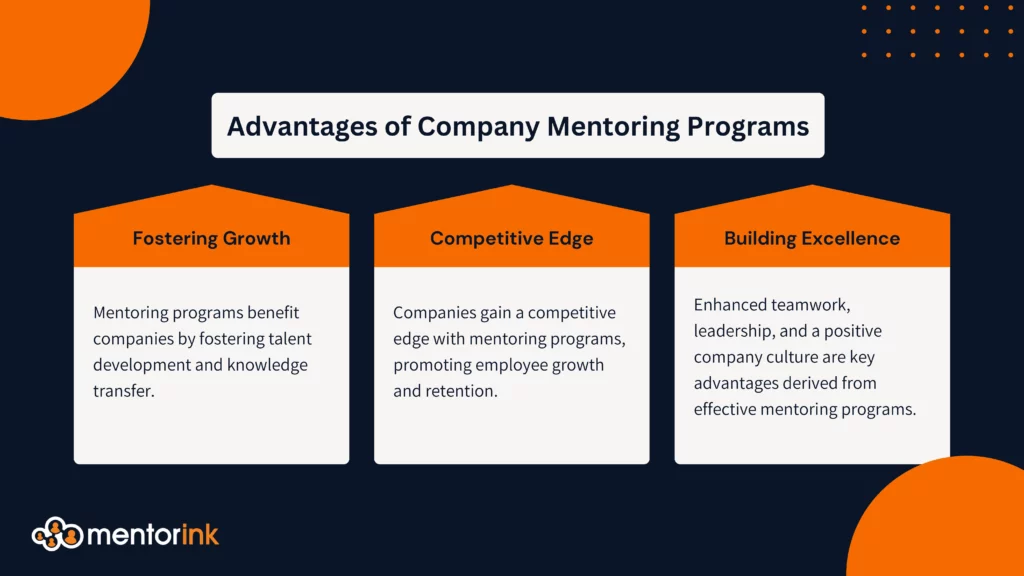
In the contemporary business life, mentoring programs are not only a trend but a strategic tool for organizational growth. These programs offer a multitude of benefits, from nurturing talent to enhancing workplace culture. Let’s delve into how companies can leverage these programs for maximum advantage.
Mentoring Helps Personal Development and Career Planning
Mentoring is a powerful catalyst for personal development and career planning. Here’s how:
- Tailored Growth: Mentors provide personalized guidance, helping mentees identify and achieve their career goals.
- Skill Enhancement: Through mentorship, employees acquire new skills and refine existing ones, crucial for career advancement.
- Career Navigation: Mentors, with their experience, can offer invaluable insights into navigating career paths effectively.
This aspect of mentor to mentee relationships is pivotal in shaping a workforce that is skilled, confident, and aligned with their career aspirations. For further insights, consider exploring Some Useful Career Advice and Tips to Advance in Your Job.
Mentorship Enables Leaders to be Recognized in the Workplace
Mentorship plays a crucial role in leadership development within organizations:
- Leadership Skills: It helps emerging leaders to develop essential skills like decision-making, problem-solving, and effective communication.
- Visibility: Mentors can help mentees gain visibility in the organization, highlighting their potential to higher management.
- Reverse Mentoring: Programs like Reverse Mentoring also allow experienced employees to learn from younger colleagues, fostering a culture of continuous learning and adaptability.
This process not only benefits the mentees but also allows mentors to refine their leadership and coaching skills.
Business Mentoring Fosters Diversity and Inclusivity
One of the most significant benefits of business mentoring is its impact on diversity and inclusivity:
- Cross-Cultural Understanding: Mentoring helps bridge cultural and generational gaps, promoting a more inclusive workplace environment.
- Diverse Perspectives: It encourages the exchange of diverse ideas and perspectives, which is essential for innovation.
- Support for Underrepresented Groups: Mentoring can be particularly beneficial for employees from underrepresented groups, providing them with the support and resources they need to succeed.
By integrating a mentoring network into their diversity initiatives, companies can create a more inclusive and dynamic workplace.
Conclusion
In conclusion, the advantages of implementing mentoring programs in companies are manifold. From enhancing personal development and career planning to promoting leadership and fostering a culture of diversity and inclusivity, the impacts are profound and far-reaching. As organizations continue to evolve, the role of mentorship becomes increasingly integral to their success. For those considering the implementation of such programs, it’s worthwhile to first examine Things to Consider Before Starting a Mentoring Program to ensure a strategic and effective approach.


